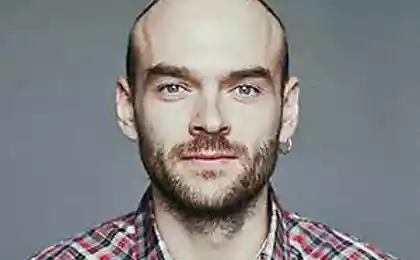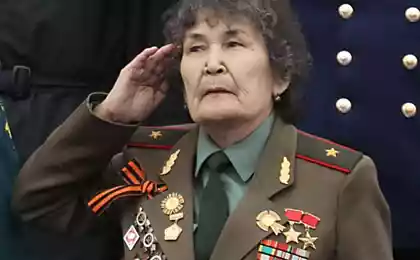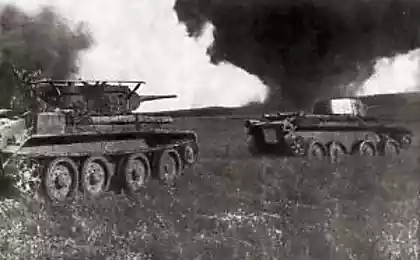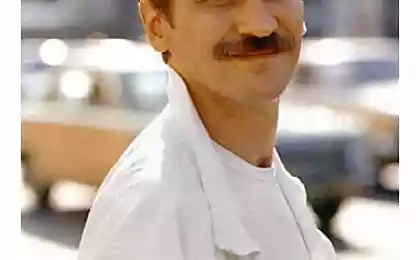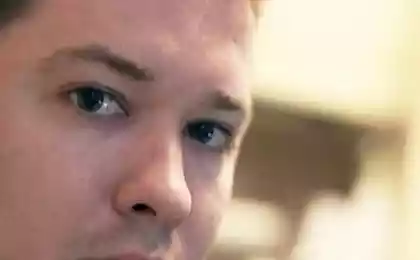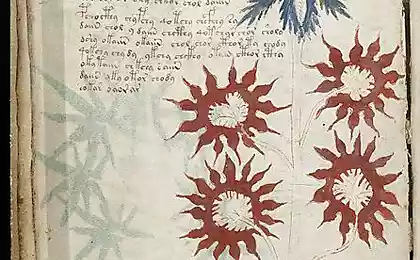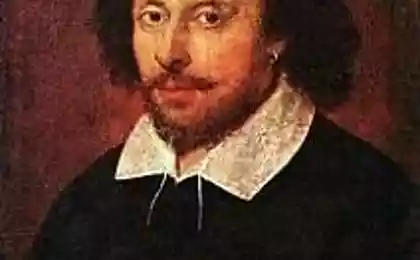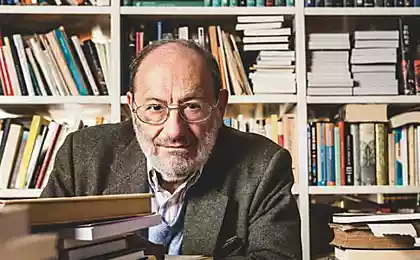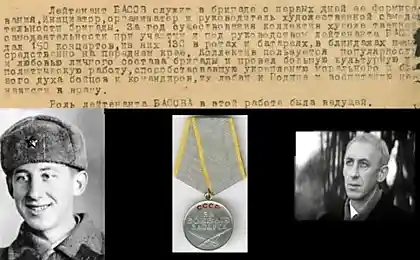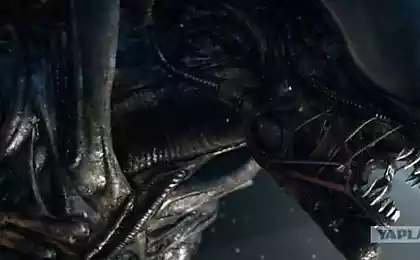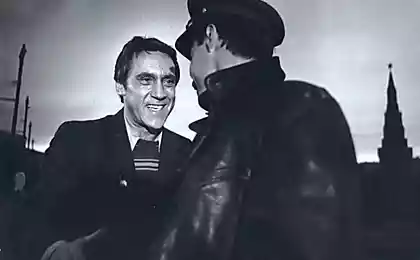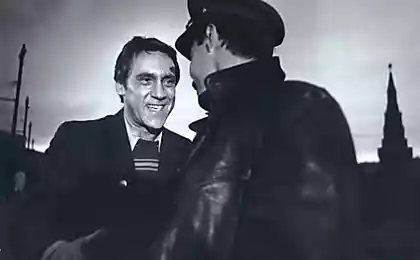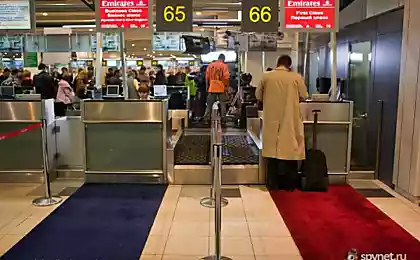1805
Actors-veterans (54 pics + text)
Actor Alexei Smirnov Makarovich. The actor at the front became a knight of the Order of Glory 2nd and 3rd degree, a knight of the Order of the Red Star, was awarded the Medal "For Courage" and "For Military Merit».
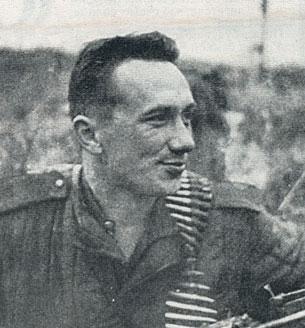
Let us briefly recall what he did in the war:
April 9, 1944 in the village after a powerful Pyliava artnalёtov two battalions of the enemy with the support of 13 tanks launched an attack. Tov. Smirnov opened with a platoon of powerful mortar fire on the German infantry. In this battle, the platoon was destroyed by fire: 4 heavy machine gun and 2 manual, 110 Nazi soldiers and officers. German counterattack was repulsed. July 20, 1944 near the height of 283.0 enemy forces up to 40 Nazis attacked the battery. Smirnov, inspiring fighters into battle with personal weapons. Fire from rifles and machine guns battery repulsed the attack of the Germans. On the battlefield, only 17 of the Nazis, Smirnov personally captured 7 of the Nazis.
January 22, 1945, despite the intense enemy fire, with his calculation on himself ferried mortar on the left bank of the Oder River. Location of mortar fire destroyed two machine-gun point in the village and up to 20 Eyhenrid Nazis. 36th artillery regiment captured the village and a bridgehead on the left bank of the Oder River.
Boris Ivanov:
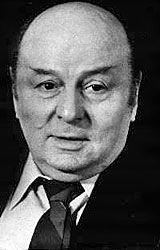
Boris Ivanov had the opportunity to serve as a scout. In one of the battles he received terrible wounds: head, back, both legs and arms. He was found on the battlefield among the dead. Future actor experienced clinical death and miraculously survived. Since then Boris always believed that he had two birthdays.
Yuri Nikulin, a member of the Finnish and the Great Patriotic War:
From the first days of the war Nikulin battery opened fire on Nazi aircraft, which broke to Leningrad, threw Gulf deep mines. As part of an anti-aircraft battery Nikulin fought until the spring of 1943, was promoted to the rank of Staff Sergeant. Then he twice visited the hospital - after pneumonia and after a concussion. After his recovery, he was sent to the 72-th separate anti-aircraft battalion under Kolpin.
About the war years Yuri recalled: "I can not say that I belong to the brave people. No, I get scared. The thing is, as the fear is manifested. With some hysterics happened - they were crying, screaming, running away. Other transferred outwardly calm ... But the first man killed in I will never forget.
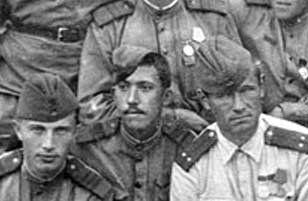
We sat at the firing position and ate from the pot. Suddenly, next to our instrument shell burst, and charge a splinter decapitated. A man sits with a spoon in his hand, steam comes out of the pot, while the upper part of the head is cut like a razor, clean ... »
Vladimir Basov:
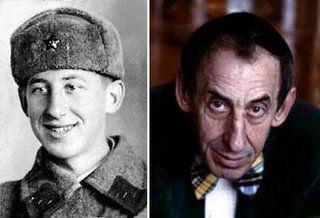
... Captain, Deputy Chief of Operations of the 28th Artillery Division breakthrough separate reserve of the High Command.
Zinovy Gerdt E.:
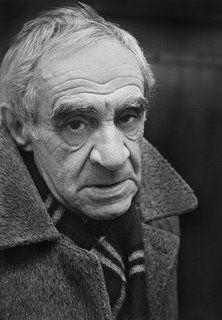
... He volunteered for the front. Senior lieutenant sapper company Gerdt not thought that he is an artist, and even participated in the initiative. In February 1943, the Belgorod, he was seriously wounded in the leg. Lameness stayed with him for life.
Sergey Safonovich Gurzo:
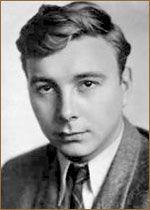
In Poland in the 44th was severely wounded. Year lain in hospitals ...
Gulyaev Vladimir Leonidovich:
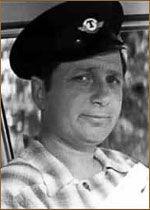
In 1942 he was admitted to the Perm flying school, from which he graduated with the rank of second lieutenant.
Bulletin Evgeni:
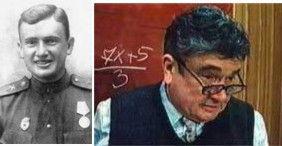
... Fought for three years. He was awarded two medals "For Courage", the Order of the Patriotic War, the Order of the Red Star.
Gluzsky Mikhail Andreyevich:

In 1940, drafted into the army, he, as an actor, had the service team at the Central Theater of the Soviet Army. During the war, was involved in front-line teams.
Smoktunovskij Innocent Mikhailovich:
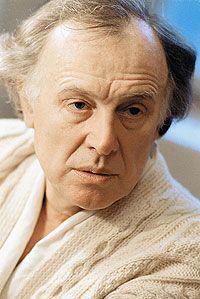
... Enrolled in a military school. ... For that study time is going to stay in the potatoes, with a foiled cadet shoulder straps and sent to the front - to hell, to the Kursk Bulge (1943).
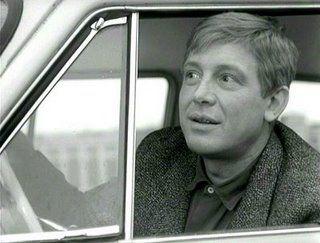
"I've never been injured. Honestly, very strange - two years of this terrible life at the front: standing under the muzzles of German machines, fought in the environment, escaped from captivity ... But was not injured. Ground during the bombing I, however, like falling asleep - so much so that some of the turf shoes with coils sticking out. I was lucky to escape when we drove to the camp. There was another way - willing to offer service in ROA ... But I did not accept it. I, eighteen, tormented boy led the instinct of self-preservation. I ferret out the peasants, where more forests and swamps, where there are fewer roads, and went there. Nazis there was nothing to do as opposed to the guerrillas. So dobrel to the village Dmitrovka ... knocked on the nearest door, and I opened. I took a step, tried to say something and fell into semi-oblivion. I was raised, was carried to bed, fed, washed in the bath. I washed a few girls - and even how they laughed! And I'm living skeleton, with stubborn belly to the spine, ribs sticking out. " In this village he lived for about a month, then helped get the case to the partisans fought in the unit, the war ended southwest of Berlin.
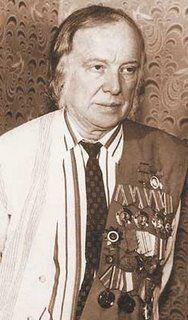
Second medal "For Courage", he received in 1945, and the first, in 1943, he was awarded forty-nine years later, after the war, on the MAT play "The Cabal of Hypocrites" right in the theater.
Mikhail Pugovkin:
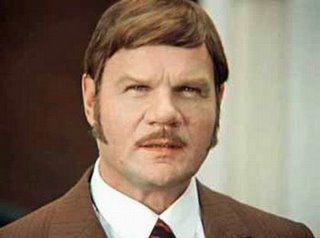
Hit the infantry regiment scout. In the Smolensk went through hell without a scratch, and in August 1942 under the Voroshilovgrad was wounded in the leg. The hospital gangrene, Michael prepared to amputation. He asked the chief surgeon of a field hospital, "Doctor, I can not be without a leg, I Artist!". The surgeon went to meet.
Georgi Yumatov:
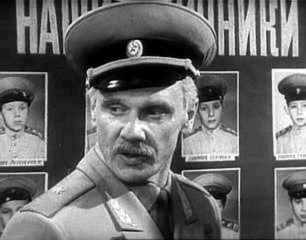
In 1941-1942 he studied at the Naval School. At age 17, went to the front, several times he was wounded, bruised. Fought in parts of the Marine Corps.
Anatoli Papanov:
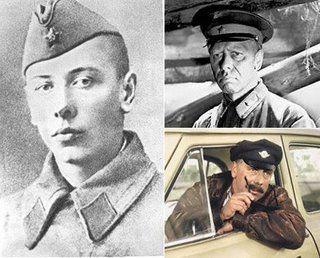
From the first days of the war - at the front. Was a senior sergeant, platoon commander of anti-aircraft artillery. In 1942, badly wounded in the leg near Kharkov and at age 21 became disabled third group.
The first days of the war were difficult for our army and tragic. Young, neobstrelyannye recruits go to hell. 'Is forget how, after two and a half hours of battle forty-two people remained thirteen?' - Recalled Papanov later. About this time he will play through many years one of the most striking and significant roles - General Serpilin in Simon's adaptation of the novel 'The Living and the Dead'.
Vladimir Etush:
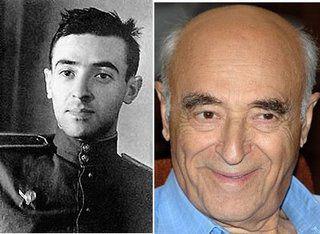
Vladimir Etush sent on a course of military translators in Stavropol. But at the front he was in infantry regiment. Etush fought in the mountains of Kabarda and Ossetia, took part in the liberation of Rostov-on-Don, Ukraine. Fought heroically, for which he was awarded the Order of the Red Star and medals. At the same time he was promoted to lieutenant. In 1944 Etush was seriously injured and after the hospital received a second group disability was discharged.
Nicholas Boyarsky:
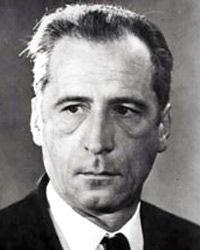
... Went to the front in June 1941.
Fyodor Roller:

... Went through the entire war. Holder of two Orders of Glory
Aleksei Vanin
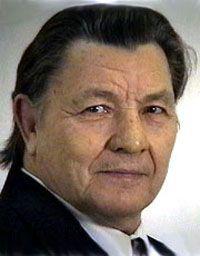
... Slowed myself years, to be called to the front. ... 1942 Stalin fought in the Siberian Division (Siberian volunteer division), was wounded.
Leonid Gaidai
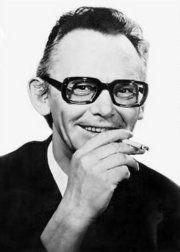
In 1942, Leonid Gaidai drafted into the army. Initially, his service was held in Mongolia, where he rode horses intended for the front. ... Rushed to the front.
When I arrived Commissar selected completion in the army, every question officer Gaidai replied "I am." "Who's the artillery?" "I," "In the cavalry?" "I," "In the Navy?" "I," "In the intelligence?" "I" - which aroused dissatisfaction chief. "Yes, you wait, Gaidai, - said the Commissar - Give announce the entire list." From this case, many years later was born episode film "Operation" Y "».
Gaidai sent to the Kalinin Front. "When I heard about the Kalinin Front, I thought that we necessarily provezut through Moscow. I thought I was in Moscow live only beautiful people, and really wanted to see her. We really was driven through Moscow, but crossed it at night underground in the subway. Train soldiers walked without stopping at any station and I Moscow did not see. "
Gaidai served as platoon walking intelligence repeatedly went behind enemy lines to take the language, was awarded several medals.
In 1943, returning from a mission, Leonid Gaidai was blown up by anti-personnel mine, was badly injured leg. About a year spent in hospital, suffered a 5 operations. He was threatened with amputation, but he refused from it. "One-legged actors do not happen" - he said. The consequences of this injury haunted him all his life. From time to time the wound is opened, the yields of fragments, bone and inflamed these tortures lasted for years. He was disabled, but never told anyone about it. Extraneous this not only did not know but had no idea, because Leonid Iovich could not stand to show their disease or infirmity. He was a real man's character.
Pyotr Glebov
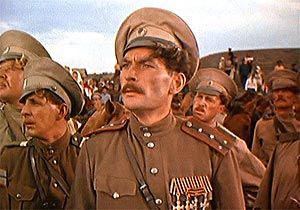
During the war I had no personal rewards - so the jubilee: "For Victory over Germany", "For the defense of Moscow." Yes and no special merit. Professional soldier did not want to be, so that the war ended Guard sergeant and commander of the anti-aircraft gun above does not Favor. The theater went to the evacuation of Central Asia, and we young artists Yurochka Leonids, Lёvochka Elagin, we picked up a gun calculation - volunteers went to the front. And served in anti-aircraft artillery regiment that guarded by Nazi planes western sector of the Moscow region: Ochakovo, Peredelkino, Vnukovo Airport. I'm four and a half years of life at the front lived, fortunately, was not injured. Living Germans have not seen, but at first it became terribly from massive raids of their bombers. They Moscow to the ground trying to erase. "Oh my God - I think - how do we shoot bad if Moscow is on fire!" But as we rejoiced when on a dark night sky, lit by our searchlights, we saw the nose of the bomber breaks our shells! And if he started to smoke and more ...
Nikolai Grinko
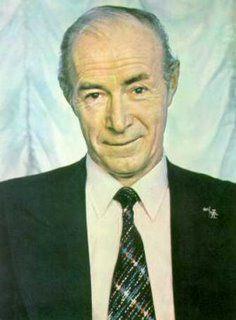
... Served as a gunner on a long-range bombers and was komsorgom Regiment.
Nikolai Eremenko
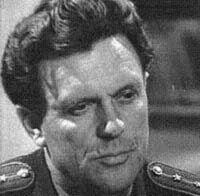
At age 15, went to the front, wounded was surrounded, was taken prisoner. Managed to survive in a Nazi concentration camp, from which several times tried to escape. Then fought in the underground resistance group. He graduated from courses for junior lieutenants in Novosibirsk (1942).
Yuri Katin-Yartsev
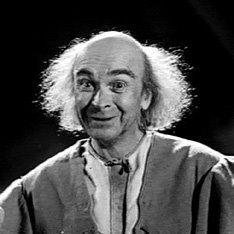
In 1939 he was drafted into the Red Army. Two years later, the war ... He was demobilized in 1946.
Vladimir Kashpur
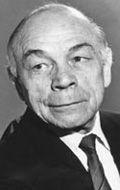
In 1943, seventeen-year-boy was enrolled in the Kharkov Military Aviation School navigators, based in Krasnoyarsk. He took part in the fighting.
After the war, Vladimir Kashpur continued to serve aviation navigator flesh until 1949. Then he was appointed manager of the Air.
Eugene S. Matveev
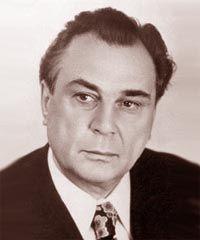
Under the incessant bombing Eugene dug trenches, participated in the creation of fortifications around the city. Forever in his memory remained eerie sound of the engines of German planes, whistling bombs, panic defenseless people. Matveev eager volunteer at the front. But fate decreed otherwise. He was sent to study in Tyumen Infantry School. Since childhood is not accustomed to do anything carelessly, Matveev and the school was an excellent student. And ... as honors his left as a teacher. Numerous requests and reports to send to the front left unattended.
Alexey Mironov
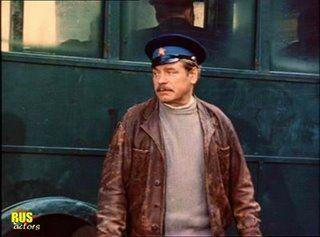
He went to war in the age of 17, attributing itself once a year. Reached Berlin, was promoted to officer. After the victory he taught at the School of NCOs in Vienna.
Vladimir Samojlov
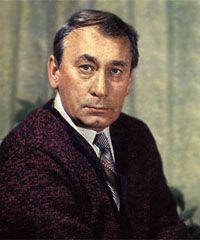
... A veteran of World War II.
Vladislav Strzhelchik
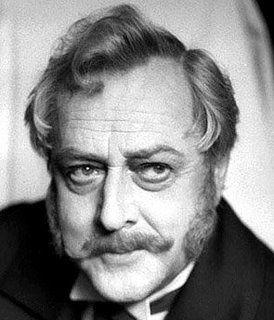
All Patriotic Vladislav Strzhelchik was at the front, at the beginning - in the army, then - in a military band. Often the actor recalled hunger and cold in those days. Then their rations he managed to bring his parents while they lived in the besieged city. Get to Leningrad for 30 kilometers - that ride to, the foot, often falling under fire. This horror hunger actor could not forget ever. Apparently, so he developed a habit to fill a refrigerator products: buy all necessary for the future and in large quantities.
Peter E. Todorovski
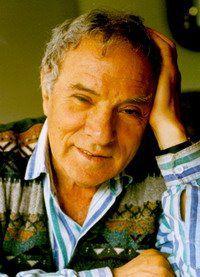
In the summer of 1943, when the war was in full swing, Peter Todorovski became a student of Saratov Military Infantry School. In 1944, a platoon commander, he was sent to the front and as part of the 93rd Infantry Regiment, 76th Infantry Division of the 47th Army of the 1st Byelorussian Front reached the front road to the Elbe.
... Long time to get to the front - for days idle train on a siding, packed lunch was eaten, and he had to sell his coat, spare underwear ... And when he finally got to the front, he, the young, has not yet been hit by an officer, immediately gave the job: with signalman find headquarters (by the end of the day the offensive bogged down, the connection with the companies of the break), reconnect, to gather all those who survived, and begin to dig a line of defense.
In fulfilling this task, Todorovski first came under heavy artillery fire. By the end of the day in the trenches it started to shake - made itself felt during the day accumulated experience, and it was cold in a tunic (overcoat something was sold).
"You, Lieutenant, do not fall asleep - said to be near Sergeant signalman. - Come on! "And they have spread to the other trench. "In the trenches was mustached man - says Peter E. - his head bent on his folded fists. He was dead ... So I first came near killed. We barely pulled out - turned out to be two meters tall man. Barely pulled off his coat - it was quite new, English. Sergeant shook her knife scraped the caked blood on his back, and put me and said: "Wear your health!" I put on my overcoat. Floors - almost to the ground very long sleeves. But this inconvenience has been removed with a knife Sgt. In this overcoat I reached the Vistula, until one day I did not see the regimental commander: "What is that ?! stuffed" And I was given a new, Russian overcoat. Although it was a belief that if you wear things with the deceased, be sure to die, in this case I was just lucky. A wounded and shell-shocked in the later one, brand new overcoat ... »
At the front Todorovski won military operators work, and he conjectured that if left alive, be sure to master this profession.
Vladimir Shainsky
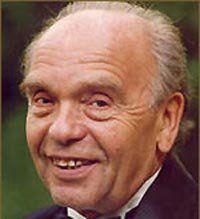
... In 1943 he was drafted into the army.
Vladimir Zamanskiy
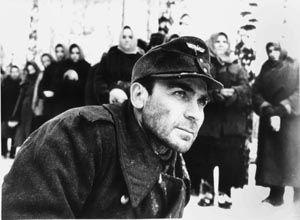
... Deceived the commission and add to his age, the boy volunteered to the front. Fought in 1944, burned in the tank commander saved.
Pavel Vinnik
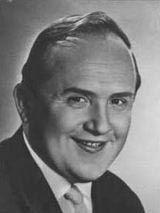
When the war began, Paul lived with his parents in Odessa. The father immediately went to the front, and in September the family received a death notice. Paul was 16 years old. With the retreating troops and his mother had gone out of town and got to Mozdok. There Paul stuck to the military, he was credited with the missing years, and he became a soldier Infantry Regiment, which reached Berlin. "I survived only because of paternal care, which showed the men of our regiment. Until the end of his life will remember each of them "- says Winnick.
Eugene D. Bourenkov
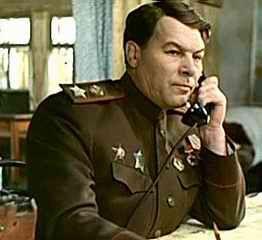
Member of the war, the parts of the Baltic Fleet.
Golubitskiy Oleg
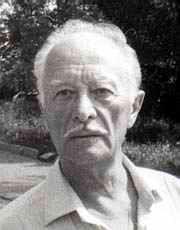
Member of the Great Patriotic War.
Gleb Strizhenov
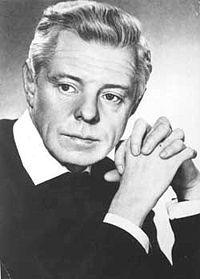
Ascribing to himself in the metric extra couple of years, he was found fit for military service, and soon found himself on the front lines. However, to war, he had failed: in the first battle he was seriously wounded, and after treatment in the hospital his komissovali.
Korzun Vasily
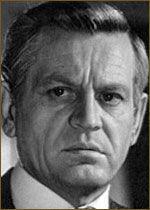
Member of the Great Patriotic War. He graduated from the Artillery School in Krasnoyarsk (1943).
Zasukhin Nikolai
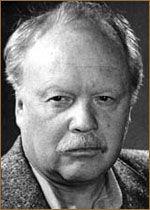
Since 1940, he served in the Army, participated in the Great Patriotic War.
Yuri Ozerov
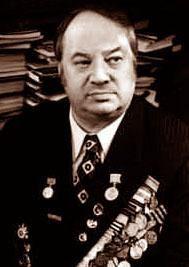
Great Patriotic War took place signalman, from private to major. During the storm Konigsberg Yuri Ozerov has thought: if he stays alive, be sure to tell by means of cinema all that saw its understanding experienced, the great era in which he happened to live. And Major Ozerov alive ... (films "Liberation", "The Battle of Moscow" and others.)
Aladdin Abbasov
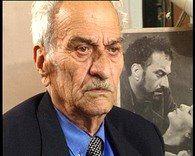
- After World War II, I was as good a fighter wanted to send to the Ministry of Internal Affairs courses in Saratov. But I chose to become an actor, I think that was born to them. (Interview).
Abramov Anatoliy
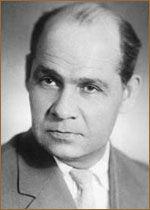
In 1937, Anatoly Abramov graduated from the Leningrad Theatre Institute and became an actor Leningrad New Theatre. Then, having served one year in the Red Army, worked as an actor in theater and Russian Vyborg Beloretsk city theater. From 1942 to 1945, Anatoly Abramov participated in the Great Patriotic War.

Let us briefly recall what he did in the war:
April 9, 1944 in the village after a powerful Pyliava artnalёtov two battalions of the enemy with the support of 13 tanks launched an attack. Tov. Smirnov opened with a platoon of powerful mortar fire on the German infantry. In this battle, the platoon was destroyed by fire: 4 heavy machine gun and 2 manual, 110 Nazi soldiers and officers. German counterattack was repulsed. July 20, 1944 near the height of 283.0 enemy forces up to 40 Nazis attacked the battery. Smirnov, inspiring fighters into battle with personal weapons. Fire from rifles and machine guns battery repulsed the attack of the Germans. On the battlefield, only 17 of the Nazis, Smirnov personally captured 7 of the Nazis.
January 22, 1945, despite the intense enemy fire, with his calculation on himself ferried mortar on the left bank of the Oder River. Location of mortar fire destroyed two machine-gun point in the village and up to 20 Eyhenrid Nazis. 36th artillery regiment captured the village and a bridgehead on the left bank of the Oder River.
Boris Ivanov:

Boris Ivanov had the opportunity to serve as a scout. In one of the battles he received terrible wounds: head, back, both legs and arms. He was found on the battlefield among the dead. Future actor experienced clinical death and miraculously survived. Since then Boris always believed that he had two birthdays.
Yuri Nikulin, a member of the Finnish and the Great Patriotic War:
From the first days of the war Nikulin battery opened fire on Nazi aircraft, which broke to Leningrad, threw Gulf deep mines. As part of an anti-aircraft battery Nikulin fought until the spring of 1943, was promoted to the rank of Staff Sergeant. Then he twice visited the hospital - after pneumonia and after a concussion. After his recovery, he was sent to the 72-th separate anti-aircraft battalion under Kolpin.
About the war years Yuri recalled: "I can not say that I belong to the brave people. No, I get scared. The thing is, as the fear is manifested. With some hysterics happened - they were crying, screaming, running away. Other transferred outwardly calm ... But the first man killed in I will never forget.

We sat at the firing position and ate from the pot. Suddenly, next to our instrument shell burst, and charge a splinter decapitated. A man sits with a spoon in his hand, steam comes out of the pot, while the upper part of the head is cut like a razor, clean ... »
Vladimir Basov:

... Captain, Deputy Chief of Operations of the 28th Artillery Division breakthrough separate reserve of the High Command.
Zinovy Gerdt E.:

... He volunteered for the front. Senior lieutenant sapper company Gerdt not thought that he is an artist, and even participated in the initiative. In February 1943, the Belgorod, he was seriously wounded in the leg. Lameness stayed with him for life.
Sergey Safonovich Gurzo:

In Poland in the 44th was severely wounded. Year lain in hospitals ...
Gulyaev Vladimir Leonidovich:

In 1942 he was admitted to the Perm flying school, from which he graduated with the rank of second lieutenant.
Bulletin Evgeni:

... Fought for three years. He was awarded two medals "For Courage", the Order of the Patriotic War, the Order of the Red Star.
Gluzsky Mikhail Andreyevich:

In 1940, drafted into the army, he, as an actor, had the service team at the Central Theater of the Soviet Army. During the war, was involved in front-line teams.
Smoktunovskij Innocent Mikhailovich:

... Enrolled in a military school. ... For that study time is going to stay in the potatoes, with a foiled cadet shoulder straps and sent to the front - to hell, to the Kursk Bulge (1943).

"I've never been injured. Honestly, very strange - two years of this terrible life at the front: standing under the muzzles of German machines, fought in the environment, escaped from captivity ... But was not injured. Ground during the bombing I, however, like falling asleep - so much so that some of the turf shoes with coils sticking out. I was lucky to escape when we drove to the camp. There was another way - willing to offer service in ROA ... But I did not accept it. I, eighteen, tormented boy led the instinct of self-preservation. I ferret out the peasants, where more forests and swamps, where there are fewer roads, and went there. Nazis there was nothing to do as opposed to the guerrillas. So dobrel to the village Dmitrovka ... knocked on the nearest door, and I opened. I took a step, tried to say something and fell into semi-oblivion. I was raised, was carried to bed, fed, washed in the bath. I washed a few girls - and even how they laughed! And I'm living skeleton, with stubborn belly to the spine, ribs sticking out. " In this village he lived for about a month, then helped get the case to the partisans fought in the unit, the war ended southwest of Berlin.

Second medal "For Courage", he received in 1945, and the first, in 1943, he was awarded forty-nine years later, after the war, on the MAT play "The Cabal of Hypocrites" right in the theater.
Mikhail Pugovkin:

Hit the infantry regiment scout. In the Smolensk went through hell without a scratch, and in August 1942 under the Voroshilovgrad was wounded in the leg. The hospital gangrene, Michael prepared to amputation. He asked the chief surgeon of a field hospital, "Doctor, I can not be without a leg, I Artist!". The surgeon went to meet.
Georgi Yumatov:

In 1941-1942 he studied at the Naval School. At age 17, went to the front, several times he was wounded, bruised. Fought in parts of the Marine Corps.
Anatoli Papanov:

From the first days of the war - at the front. Was a senior sergeant, platoon commander of anti-aircraft artillery. In 1942, badly wounded in the leg near Kharkov and at age 21 became disabled third group.
The first days of the war were difficult for our army and tragic. Young, neobstrelyannye recruits go to hell. 'Is forget how, after two and a half hours of battle forty-two people remained thirteen?' - Recalled Papanov later. About this time he will play through many years one of the most striking and significant roles - General Serpilin in Simon's adaptation of the novel 'The Living and the Dead'.
Vladimir Etush:

Vladimir Etush sent on a course of military translators in Stavropol. But at the front he was in infantry regiment. Etush fought in the mountains of Kabarda and Ossetia, took part in the liberation of Rostov-on-Don, Ukraine. Fought heroically, for which he was awarded the Order of the Red Star and medals. At the same time he was promoted to lieutenant. In 1944 Etush was seriously injured and after the hospital received a second group disability was discharged.
Nicholas Boyarsky:

... Went to the front in June 1941.
Fyodor Roller:

... Went through the entire war. Holder of two Orders of Glory
Aleksei Vanin

... Slowed myself years, to be called to the front. ... 1942 Stalin fought in the Siberian Division (Siberian volunteer division), was wounded.
Leonid Gaidai

In 1942, Leonid Gaidai drafted into the army. Initially, his service was held in Mongolia, where he rode horses intended for the front. ... Rushed to the front.
When I arrived Commissar selected completion in the army, every question officer Gaidai replied "I am." "Who's the artillery?" "I," "In the cavalry?" "I," "In the Navy?" "I," "In the intelligence?" "I" - which aroused dissatisfaction chief. "Yes, you wait, Gaidai, - said the Commissar - Give announce the entire list." From this case, many years later was born episode film "Operation" Y "».
Gaidai sent to the Kalinin Front. "When I heard about the Kalinin Front, I thought that we necessarily provezut through Moscow. I thought I was in Moscow live only beautiful people, and really wanted to see her. We really was driven through Moscow, but crossed it at night underground in the subway. Train soldiers walked without stopping at any station and I Moscow did not see. "
Gaidai served as platoon walking intelligence repeatedly went behind enemy lines to take the language, was awarded several medals.
In 1943, returning from a mission, Leonid Gaidai was blown up by anti-personnel mine, was badly injured leg. About a year spent in hospital, suffered a 5 operations. He was threatened with amputation, but he refused from it. "One-legged actors do not happen" - he said. The consequences of this injury haunted him all his life. From time to time the wound is opened, the yields of fragments, bone and inflamed these tortures lasted for years. He was disabled, but never told anyone about it. Extraneous this not only did not know but had no idea, because Leonid Iovich could not stand to show their disease or infirmity. He was a real man's character.
Pyotr Glebov

During the war I had no personal rewards - so the jubilee: "For Victory over Germany", "For the defense of Moscow." Yes and no special merit. Professional soldier did not want to be, so that the war ended Guard sergeant and commander of the anti-aircraft gun above does not Favor. The theater went to the evacuation of Central Asia, and we young artists Yurochka Leonids, Lёvochka Elagin, we picked up a gun calculation - volunteers went to the front. And served in anti-aircraft artillery regiment that guarded by Nazi planes western sector of the Moscow region: Ochakovo, Peredelkino, Vnukovo Airport. I'm four and a half years of life at the front lived, fortunately, was not injured. Living Germans have not seen, but at first it became terribly from massive raids of their bombers. They Moscow to the ground trying to erase. "Oh my God - I think - how do we shoot bad if Moscow is on fire!" But as we rejoiced when on a dark night sky, lit by our searchlights, we saw the nose of the bomber breaks our shells! And if he started to smoke and more ...
Nikolai Grinko

... Served as a gunner on a long-range bombers and was komsorgom Regiment.
Nikolai Eremenko

At age 15, went to the front, wounded was surrounded, was taken prisoner. Managed to survive in a Nazi concentration camp, from which several times tried to escape. Then fought in the underground resistance group. He graduated from courses for junior lieutenants in Novosibirsk (1942).
Yuri Katin-Yartsev

In 1939 he was drafted into the Red Army. Two years later, the war ... He was demobilized in 1946.
Vladimir Kashpur

In 1943, seventeen-year-boy was enrolled in the Kharkov Military Aviation School navigators, based in Krasnoyarsk. He took part in the fighting.
After the war, Vladimir Kashpur continued to serve aviation navigator flesh until 1949. Then he was appointed manager of the Air.
Eugene S. Matveev

Under the incessant bombing Eugene dug trenches, participated in the creation of fortifications around the city. Forever in his memory remained eerie sound of the engines of German planes, whistling bombs, panic defenseless people. Matveev eager volunteer at the front. But fate decreed otherwise. He was sent to study in Tyumen Infantry School. Since childhood is not accustomed to do anything carelessly, Matveev and the school was an excellent student. And ... as honors his left as a teacher. Numerous requests and reports to send to the front left unattended.
Alexey Mironov

He went to war in the age of 17, attributing itself once a year. Reached Berlin, was promoted to officer. After the victory he taught at the School of NCOs in Vienna.
Vladimir Samojlov

... A veteran of World War II.
Vladislav Strzhelchik

All Patriotic Vladislav Strzhelchik was at the front, at the beginning - in the army, then - in a military band. Often the actor recalled hunger and cold in those days. Then their rations he managed to bring his parents while they lived in the besieged city. Get to Leningrad for 30 kilometers - that ride to, the foot, often falling under fire. This horror hunger actor could not forget ever. Apparently, so he developed a habit to fill a refrigerator products: buy all necessary for the future and in large quantities.
Peter E. Todorovski

In the summer of 1943, when the war was in full swing, Peter Todorovski became a student of Saratov Military Infantry School. In 1944, a platoon commander, he was sent to the front and as part of the 93rd Infantry Regiment, 76th Infantry Division of the 47th Army of the 1st Byelorussian Front reached the front road to the Elbe.
... Long time to get to the front - for days idle train on a siding, packed lunch was eaten, and he had to sell his coat, spare underwear ... And when he finally got to the front, he, the young, has not yet been hit by an officer, immediately gave the job: with signalman find headquarters (by the end of the day the offensive bogged down, the connection with the companies of the break), reconnect, to gather all those who survived, and begin to dig a line of defense.
In fulfilling this task, Todorovski first came under heavy artillery fire. By the end of the day in the trenches it started to shake - made itself felt during the day accumulated experience, and it was cold in a tunic (overcoat something was sold).
"You, Lieutenant, do not fall asleep - said to be near Sergeant signalman. - Come on! "And they have spread to the other trench. "In the trenches was mustached man - says Peter E. - his head bent on his folded fists. He was dead ... So I first came near killed. We barely pulled out - turned out to be two meters tall man. Barely pulled off his coat - it was quite new, English. Sergeant shook her knife scraped the caked blood on his back, and put me and said: "Wear your health!" I put on my overcoat. Floors - almost to the ground very long sleeves. But this inconvenience has been removed with a knife Sgt. In this overcoat I reached the Vistula, until one day I did not see the regimental commander: "What is that ?! stuffed" And I was given a new, Russian overcoat. Although it was a belief that if you wear things with the deceased, be sure to die, in this case I was just lucky. A wounded and shell-shocked in the later one, brand new overcoat ... »
At the front Todorovski won military operators work, and he conjectured that if left alive, be sure to master this profession.
Vladimir Shainsky

... In 1943 he was drafted into the army.
Vladimir Zamanskiy

... Deceived the commission and add to his age, the boy volunteered to the front. Fought in 1944, burned in the tank commander saved.
Pavel Vinnik

When the war began, Paul lived with his parents in Odessa. The father immediately went to the front, and in September the family received a death notice. Paul was 16 years old. With the retreating troops and his mother had gone out of town and got to Mozdok. There Paul stuck to the military, he was credited with the missing years, and he became a soldier Infantry Regiment, which reached Berlin. "I survived only because of paternal care, which showed the men of our regiment. Until the end of his life will remember each of them "- says Winnick.
Eugene D. Bourenkov

Member of the war, the parts of the Baltic Fleet.
Golubitskiy Oleg

Member of the Great Patriotic War.
Gleb Strizhenov

Ascribing to himself in the metric extra couple of years, he was found fit for military service, and soon found himself on the front lines. However, to war, he had failed: in the first battle he was seriously wounded, and after treatment in the hospital his komissovali.
Korzun Vasily

Member of the Great Patriotic War. He graduated from the Artillery School in Krasnoyarsk (1943).
Zasukhin Nikolai

Since 1940, he served in the Army, participated in the Great Patriotic War.
Yuri Ozerov

Great Patriotic War took place signalman, from private to major. During the storm Konigsberg Yuri Ozerov has thought: if he stays alive, be sure to tell by means of cinema all that saw its understanding experienced, the great era in which he happened to live. And Major Ozerov alive ... (films "Liberation", "The Battle of Moscow" and others.)
Aladdin Abbasov

- After World War II, I was as good a fighter wanted to send to the Ministry of Internal Affairs courses in Saratov. But I chose to become an actor, I think that was born to them. (Interview).
Abramov Anatoliy

In 1937, Anatoly Abramov graduated from the Leningrad Theatre Institute and became an actor Leningrad New Theatre. Then, having served one year in the Red Army, worked as an actor in theater and Russian Vyborg Beloretsk city theater. From 1942 to 1945, Anatoly Abramov participated in the Great Patriotic War.

